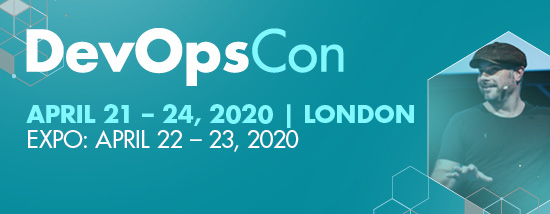A research study by The National Center for Women & Information Technology showed that “gender diversity has specific benefits in technology settings,” which could explain why tech companies have started to invest in initiatives that aim to boost the number of female applicants, recruit them in a more effective way, retain them for longer, and give them the opportunity to advance. But is it enough?
Two years ago, we launched a diversity series aimed at bringing the most inspirational and powerful women in the tech scene to your attention. Today, we’d like you to meet Ina Einemann, Consultant at the HEC GmbH.
Today’s woman in tech: Ina Einemann, Consultant at HEC GmbH
Ina Einemann works as a consultant at the HEC GmbH in Bremen. In addition to her work as a Scrum Master, her activity field includes Requirements Engineering and Quality Assurance. She works with agile methods and process models and advises teams on the implementation of agile practices, especially in the area of ATDD and BDD. Ina is also a trainer at the HEC Software Academy.
What got you interested in technology?
I already had my own computer quite early on and wanted to take an apprenticeship in that direction because I could tell that was the future. Then, the position of an IT Systems Management Assistant at Telekom was offered to me. During my three year apprenticeship, I spent a lot of time in the office of the future IT specialists because I got along with them very well. By then it was crystal clear that I was on the same wavelength as the developers.
I took a job in Bremen afterwards, but it gravitated more towards marketing and, as time went by, sadly, more and more towards sales. Since it turned more and more into cold acquisition, which I enjoyed less and less, I started studying Business Informatics on the side. It was my goal to communicate with the developers on the same level again. The development department and the other departments, affectionately called Overhead by the developers, were on different floors in the Bremen company and yet they very much worked side by side.
It was my goal to communicate with developers on the same level again.
Shortly before the end of my studies, I switched to my current company, HEC GmbH in Bremen, where I wrote my bachelor thesis. Here, I learned about agile methods and thus also which new roles there are to fill in a team. I quickly realized that I am at home in the field of Requirement Management and Agile Consulting. I communicate daily with developers and testers, but also with customers, product owners, and other business analysts and I really enjoy this central and diverse position.
Do you have any role models or supporters?
Frank Düsterbeck, my group lead, has always supported me a lot and he still does. He sees himself more as a mentor and coach and it is due to this kind of communication – as equals – that I’ve learned so much. I’ve never had such a friendly relationship with my “superior” (I hope he doesn’t read this, he hates that word!).
Don’t let it get you down – just do it.
On my first project assignment when I was still very inexperienced in agile methods and was slowly learning to become a Scrum Master, a colleague told me that I was a great addition to the team because before I got there, they felt like they were stuck in a rut and the mood wasn’t great. It motivated me a lot to know that I was able to help my team despite having less experience with their techniques and methods.
A day in Ina’s life
I work as an Agile Consultant for Requirement Management and as a Scrum Master at the HEC GmbH in Berlin. At the moment, I supervise one of our teams as a Scrum Master and support them in becoming a team, or in remaining one, and to remove obstacles. The project has been around for quite some time and through the years several things have found their way into it and needed to be removed. The communication between requesters and team, the iteration process, the meeting culture, and other areas that need work have evolved over time. There is more than enough to do because there were also some changes within the team. I’ve been a member of teams that have completely reformed before that. Both of these are very diversified and interesting tasks.
Otherwise I give different workshops for customers, mostly on the topic of Requirement Management, and also speak on conferences about Requirement Management and agile methods. However, I have yet to develop a project on my own. Of course, programming was a part of my studies, even in secondary school as an optional course, but a really great project never came up. I simply lack the practice to develop myself. I understand what my colleagues are talking about, so I speak their “language”, but I would not get much done by myself. Therefore, I also speak the language of the customer and help them to find each other and to work together optimally.
Why aren’t there more women in tech?
I believe that the reason why there aren’t more women in the tech industry is that some women lack the courage to join or aren’t interested enough in the field. I see few hurdles. There are a lot of women at HEC, so I don’t feel like I’m one of the very few.
Would our world be different if more women working in STEM?
I generally see mixed teams as an advantage and not just in the STEM field.
I think that it is good for every team to have some women and men represented. Although I’m not a fan of clichés, I do think that men and women have different qualities and that it is healthy to have a mixture of these qualities for every task and every team.
We need mixed teams for different perspectives.
It would be great if this whole diversity debate would soon be history. As I said, I think we need mixed teams for different perspectives to be able to solve future tasks well.
Did anyone ever try to stop you from learning and advancing in your professional life?
I was fortunate that no one tried to put obstacles in my way and I never suffered any disadvantages due to me being a woman.
Of course I have also met the typical developer, who thinks he doesn’t need to talk to me because I can’t understand or help him anyway. But after a while I could convince most of them that the exchange is worth it. And the few entrenched specimens should not spoil your day.
What advice would you give to women who want a career in tech?
Don’t let it get you down – just do it. It is a great industry with lots of opportunities. And as for my employer, it is a lot more family-friendly than many other areas in other companies.
Don’t miss our Women in Tech profiles:
- Women in Tech: Stefanie Langner – “Diversity still has a long way to go”
- Women in Tech: Grace Jansen – “We desperately need people who think differently in this industry”
- Women in Tech: Birgit Krenn – “Stop telling women what they are doing wrong”
- Women in tech: Khallai Taylor – “Diversity is mute without inclusion!”
- Women in tech: Irene Lopez – “Having a diversity of viewpoints makes for a more accessible and educated industry”
For even more Women in Tech, click here.
The post Women in Tech: “Women and men must be equally represented” appeared first on JAXenter.
Source : JAXenter


























